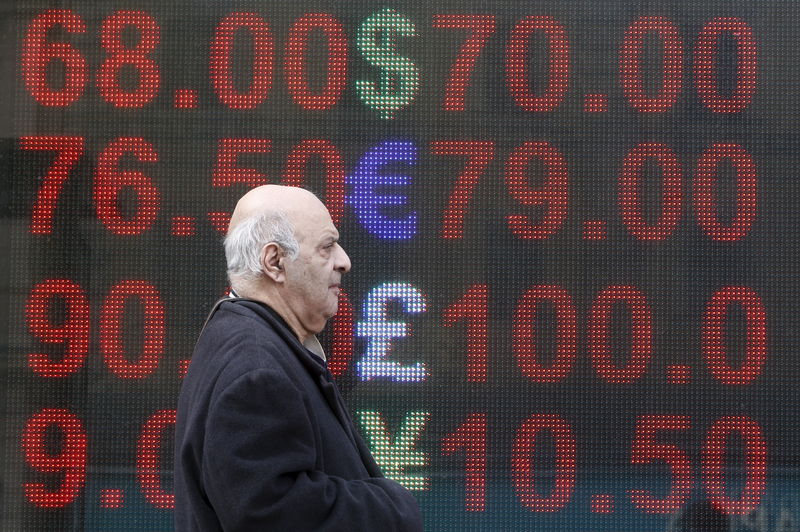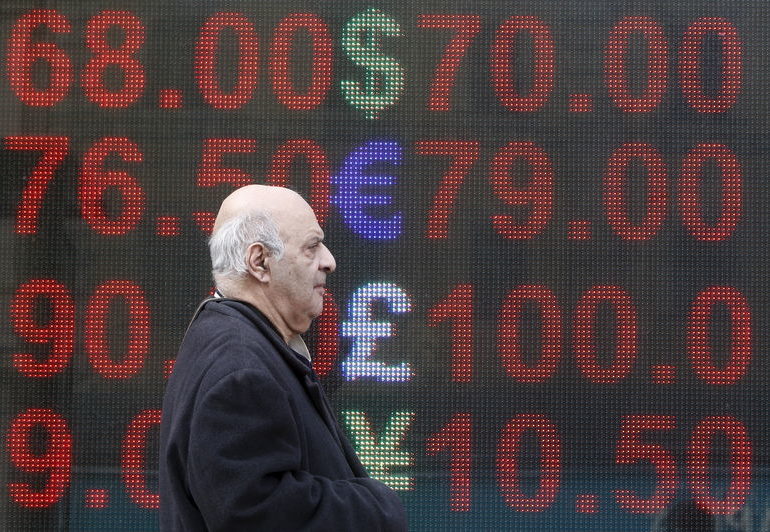 © Reuters. Guardians of World Economy See Long Road for Pandemic Recovery
© Reuters. Guardians of World Economy See Long Road for Pandemic Recovery(Bloomberg) — The guardians of the global economy this week implored governments to act to avoid a two-speed rebound where vaccinated, rich nations recover more strongly from the pandemic than poorer countries languishing under the burden of disease and debt.
The International Monetary Fund said that it sees the U.S., as well as China, as the locomotive for global economic growth. The world’s largest economy, fueled by trillions of dollars in stimulus spending, is expected next year to surpass its pre-pandemic projected level of output.
But many emerging and developing economies, struggling with slow growth and mountains of debt, will take much longer. The central theme of the IMF’s virtual spring meetings with the World Bank was “giving everyone a fair shot” — a slogan that underlined both concerns about inequality and the importance of speeding up the distribution of vaccines globally.
Here are some of the highlights from the meetings:
Economic Improvement
The IMF said the outlook for global economic growth has brightened since its last estimate in January, forecasting a 6% expansion for the year — the fastest pace in four decades of data. The U.S.’s $1.9 trillion relief package passed last month will have sizable positive spillovers for trading partners.
Still, emerging-market and developing economies may take until 2023 to recover their pre-pandemic output levels, and the world economy in 2024 will be about 3% smaller than anticipated before the Covid-19 outbreak, according to the fund.
Poorer countries will need to deploy $450 billion to rebuild over the next five years and accelerate their income convergence with advanced economies, according to the IMF, underlining their need to collect more revenue and receive external financing.
Special Drawing Rights
New Treasury Secretary Janet Yellen put her weight behind a proposal for an issuance of $650 billion in IMF reserve assets, called special drawing rights, or SDRs, that was blocked for almost a year by the Trump administration.
The Group of 20 largest economies also backed the plan, which would provide $21 billion in liquidity support to low-income countries, freeing up more resources to spend on health care as the world battles vaccine inequality.
Yet because SDRs are allotted to nations according to their share of the IMF, finding ways to reallocate them once issued will be just as important. The Rockefeller Foundation calls for countries to use at least $100 billion of their unneeded rights to provide support to the developing world. Mexico and Argentina also called for finding more ways for middle-income nations to benefit from SDRs, a proposal that Georgieva said the fund will discuss.
Debt Relief
In the meantime, the G-20 extended its Debt Service Suspension Initiative, or DSSI, for the poorest countries, due to expire in June, to the end of the year, while stating that this will be the final extension of the program started in May 2020. More than 40 participating countries have so far received roughly $13 billion in temporary relief.
Nations stand to receive billions of dollars in additional debt relief. Yet neither the DSSI nor the SDR allocation will avoid debt restructurings for countries that need them, and creditors will need to consider debt forgiveness, said Carmen Reinhart, the World Bank’s chief economist. Already Chad, Zambia and Ethiopia have sought to renegotiate through the G-20’s Common Framework, with more nations likely to eventually join.
Failure to address the debt issues could lead to a “lost decade” for countries in Africa and Asia, said Mohamed El-Erian, president of the University of Cambridge’s Queens’ College and a Bloomberg Opinion columnist.
Global Tax
U.S. cooperation with the rest of the global economic community after years of Trump’s “America First” mantra isn’t just on SDRs.
Yellen used a speech on Monday ahead of the meetings to lay out the case for a harmonized corporate tax rate across the world’s major economies. The Biden administration also floated a compromise proposal to counterparts around the world that would apply a new international tax code to, at most, 100 global corporate giants.
While hurdles remain, the surprise U.S. offer could help move previously stalled negotiations to consensus, and G-20 finance chiefs this week pledged to agree on new rules by mid-year. An accord could have significant ramifications for the world, bolstering incomes for many governments as they try to rebuild their economies after the pandemic.
The IMF is very much in favor of a global minimum tax, Chief Economist Gita Gopinath said. “We have a large amount of tax shifting, tax avoidance, countries sending money to tax havens,” she said.
Green Recovery
The Biden administration is pushing aggressively into climate-change policy, a reversal from the Trump years. It’s a priority that the IMF shares.
During an event with Georgieva, U.S. climate envoy John Kerry flagged that Biden would issue an executive order around disclosing climate-change risk, which would affect financial firms. A draft of the document indicates a government-wide strategy is set to be developed within 120 days.
Kerry said Biden’s $2 trillion infrastructure proposal is slated to form one part of the climate-friendly approach, which includes funds to make assets more resilient to the effects of climate change, such as rising sea levels. Georgieva endorsed the green infrastructure focus for generating growth and jobs.

